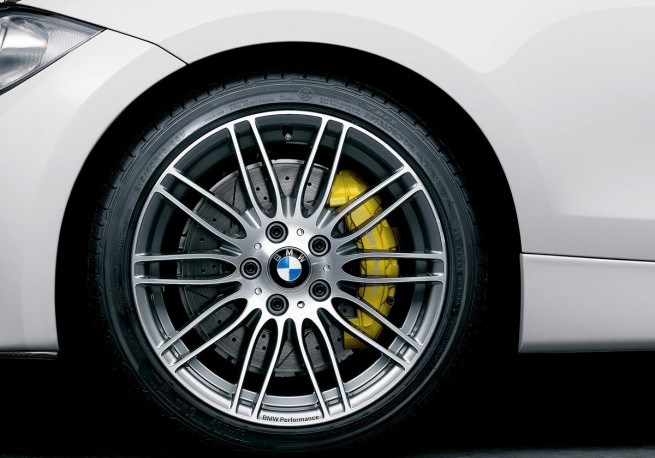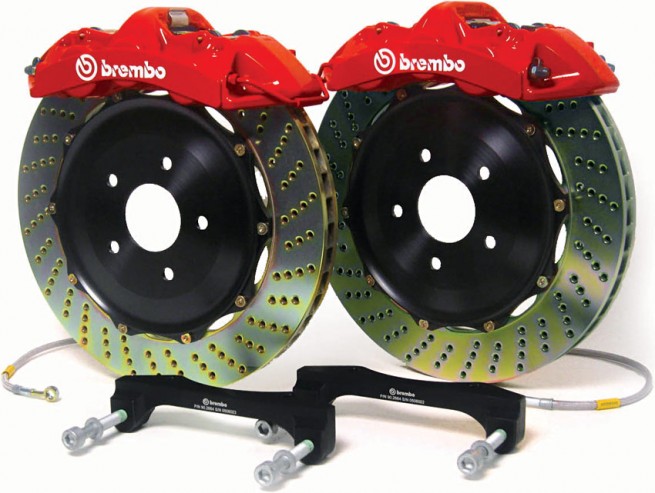A brief introduction to brakes and the reasons for their evolution with some advice thrown in for good measure.
Ever stop to think about your brakes? Most people don’t think too much of them until they start squeaking, shaking or worse, give out all-together. I don’t have to be a mechanical engineer in order to appreciate a piece of tech that in many instances has saved my life.
There is something quite special about braking systems that intrigues me and even more so in today’s ever heavier, ever more powerful cars. The story behind the need for more high performing brakes is a rather romantic one in my opinion and follows a “cause and effect” order.
 With our never-ending desire for more power, automobile manufacturers were forced to increase their engine size. This meant a larger displacement, more cylinders which bring with them extra intake and exhaust valves, larger camshafts, bigger radiators, larger intercoolers…the list goes on. All that power required a stronger, sturdier clutch and linkage. Additionally, now that the vehicle is capable of higher speeds, it now requires stronger suspension parts to cope with the cornering abilities of the car.
With our never-ending desire for more power, automobile manufacturers were forced to increase their engine size. This meant a larger displacement, more cylinders which bring with them extra intake and exhaust valves, larger camshafts, bigger radiators, larger intercoolers…the list goes on. All that power required a stronger, sturdier clutch and linkage. Additionally, now that the vehicle is capable of higher speeds, it now requires stronger suspension parts to cope with the cornering abilities of the car.Now on to the interior. On top of the power demands we make, we also like a bit of luxury. Nothing makes us feel more in command than a really comfortable, leather clad, lumbar supportive, side adjustable, heated and cooled, massage capable electric seat. Next up is safety and airbags. Don’t get me wrong, I’m not condemning these things, I’m just trying to make a point.

Where are you going with this you may ask? If you haven’t picked up on the theme just yet, it’s weight. All of the above listed are bigger, heavier and carry more mass than their predecessor. Now for a bit of physics:
An object with a large mass, in motion (say 62 mph) takes longer to come to a full stop than an object with a smaller mass. Or, in basic car talk, a heavier car takes longer to stop than a lighter car does.Everything adds weight, and weight is the enemy.
If however you are seeking something a bit more track oriented while at the same time keeping things civilized for everyday driving, then one quick look at the BMW Performance Brake Kit will be your answer. These brakes are tested even more stringently and provide performance gains that normal driving wouldn’t otherwise necessitate.

Additionally, regular brake fluid maintenance as well as periodic brake line inspections are encouraged if you fall within the “spirited driving” category.
Here are some more tips that might come in handy as well as extend the life of your brakes:
- When constant braking is required, such as downhill driving, try to be in a lower gear in order to provide some engine braking and help the breaks breathe out a bit. Additionally, try not to stand on your brakes for too long of a period. The friction material that your brake pads are made out of will begin to breakdown and produce gases as well as heat that generate a space between the pads and the rotor surface. To allow these gases and particles to escape as well as to cool your brakes, lift off from your brake pedal every so often. Not too often though as you may start to annoy the car behind you!
- After excessive braking, try not to drive through large puddles of water or wash your car immediately. The rotors are hot and the cold water can lead to your rotors warping. This will manifest itself through your steering
wheel vibrating or shaking when you apply the brakes. - BMW cars are somewhat notorious for the amount of brake dust that they generate. This might be due to the softer compounds that BMW utilize in the construction of the brake pads themselves. However, keeping your wheels clean and brake dust free will ensure that your brakes receive fresh, cool airflow. Too hot is bad and too cold is also not good.
- Lastly, if your BMW is equipped with brake cooling ducts that bring in fresh air from the front or side air inlets, be sure that no leaves or debris is present that could obstruct the flow of air.


No comments:
Post a Comment